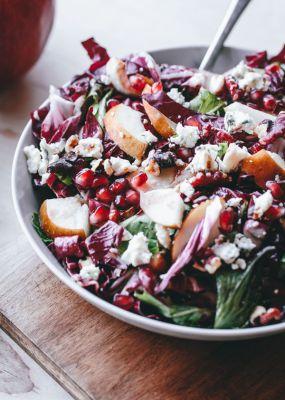In 2016, McDonald’s made the decision to remove TBHQ from their McNuggets. Considering the list of questionable ingredients that feature in fast food, one has to wonder why the fast food giant took such a stance with this particular ingredient. So, what is TBHQ, and why is everyone so worried about it being in their food?
What is TBHQ?
TBHQ (tertiary butylhydroquinone) is a preservative and antioxidant whose use was approved by The Food and Drug Administration (FDA) in 1972, with them labeling it as GRAS, or “Generally Recognized as Safe.”
Now, you may be reading that and thinking how exactly TBHQ is an antioxidant if it’s not naturally found in foods like blueberries and spinach?
The answer?
It is an antioxidant because it prevents foods from oxidizing, ensuring that they don’t become stale or unappetizing, increasing their shelf life.
So, which foods contain TBHQ? Well, any food that you’d store in the cupboard or freezer. These foods include, but are not limited to:
- Processed fats and oils like canola oil
- Microwave popcorn
- Crackers
- Cake and muffin mix
- Pre-packaged and frozen foods like casseroles
- Soft drinks
But food isn’t the only way you’ll come into contact with this ingredient. As mentioned, the function of TBHQ is to prevent the degradation of goods, so manufacturers also use it in paints, varnishes, cosmetics, and even some pet foods. and skin care products.
Is TBHQ safe?
Well, it’s complicated.
Yes, the ingredient has been approved by the FDA and the regulatory body even determined that a food’s TBHQ content should not account for more than 0.02 percent of an item’s total fat and oil content.
However, considering that the consumption of processed and pre-packaged food has continuously increased in the majority of the population in the past two decades, it’s safe to say that we’re eating more TBHQ than the FDA intended.
“Since the FDA cleared its usage back in 1972, the use of packaged, processed, and frozen meals have increased in popularity, thus increasing the overall consumption of TBHQ,” says Hailey James, RDN-E, a registered dietitian with Wellory Nutrition Coach, to Verywell Fit.
So, how is this increase in consumption affecting our health?
Health Dangers of TBHQ
Can affect the immune system
One priority that many of us have followed after 2020 is strengthening the health of our immune system, and one way to do so would be to reduce our intake of TBHQ.
According to a recent study published in Life, TBHQ was found to regulate the virus-dependent processes in both influenza and SARS-CoV-2 infections.
Additionally, an older study from Michigan State University suggested that the ingredient may impact the activation of immune system cells responsible for fighting viruses.
2. May Increase Cancer Risk
Research into the potential link between TBHQ and cancer is, at best, inconclusive.
In 2003, the European Food Safety Authority (EFSA) 2004 Panel declared TBHQ as non-carcinogenic. However, three years later in 2007, a study from the Centres for Science the Public Interest (CSPI) suggested that TBHQ may increase the incidence of tumors in rats who consume it.
What’s more, a separate study published the following year noted that TBHQ helped cancer cells live longer by making the cells more resistant to chemotherapy.
However, there is some research that has found TBHQ to have the complete opposite effect on cancer cells, with one 2014 study finding that TBHQ decreased the growth of lung cancer cells.
So, can TBHQ cause cancer? At this point, the jury is still out, and we need more peer-reviewed studies to confirm this theory.
3. May Cause Food Allergies
According to researchers from the University of Michigan, TBHQ plays quite a role when it comes to food allergies.
The study, led by researcher Cheryl Rockwell, Ph.D., found that TBHQ’s effect on the immune system may either induce or worsen existing food allergies.
How Can I Avoid It?
Granted, research into how TBHQ may influence human health isn’t exactly consistent, but that doesn’t mean that you want the ingredient in your system. So perhaps it’s time that you limit how much you consume.
To start, it would be best to read food labels. Look out for it and its other names:
- tert-butylhydroquinone
- tertiary butylhydroquinone
- butylated hydroxyanisol
Additionally, TBHQ features in processed, fast and pre-packaged foods. So, you could also cut back on your consumption of these products and focus on increasing your intake of fresh ingredients, like fresh fruits and vegetables, as well as nuts and seeds.
Want to know more?
TBHQ isn’t the only ingredient that you need to be keeping an eye out for, as MSG (monosodium glutamate) is one food ingredient that may impact your health.
MAIN IMAGE CREDIT: Photo by Georgia Vagim on Unsplash
References
Eskandani M, Hamishehkar H, Ezzati Nazhad Dolatabadi J. Cytotoxicity and DNA damage properties of tert-butylhydroquinone (TBHQ) food additive. Food Chem. 2014 Jun 15;153:315-20. doi: 10.1016/j.foodchem.2013.12.087. Epub 2014 Jan 3. PMID: 24491735.
Gharavi Negar, Haggarty Susan and S. El-Kadi O. Ayman, Chemoprotective and Carcinogenic Effects of tert-Butylhydroquinone and Its Metabolites, Current Drug Metabolism 2007; 8(1) . https://dx.doi.org/10.2174/138920007779315035
Juul F, Parekh N, Martinez-Steele E, Monteiro CA, Chang VW. Ultra-processed food consumption among US adults from 2001 to 2018. Am J Clin Nutr. 2022 Jan 11;115(1):211-221. doi: 10.1093/ajcn/nqab305. PMID: 34647997.
Németh, K., Petschner, P., Pálóczi, K., Fekete, N., Pállinger, É., Buzás, E. I., & Tamási, V. (2022). Chronic Exposure to the Food Additive tBHQ Modulates Expression of Genes Related to SARS-CoV-2 and Influenza Viruses. Life, 12(5). https://doi.org/10.3390/life12050642
Wang, J., Sun, Z., Villeneuve, N. F., Zhang, S., Zhao, F., Li, Y., Chen, W., Yi, X., Zheng, W., Wondrak, G. T., Wong, P. K., & Zhang, D. D. (2008). Nrf2 enhances resistance of cancer cells to chemotherapeutic drugs, the dark side of Nrf2. Carcinogenesis, 29(6), 1235-1243. https://doi.org/10.1093/carcin/bgn095





![women [longevity live]](https://longevitylive.com/wp-content/uploads/2020/01/photo-of-women-walking-down-the-street-1116984-100x100.jpg)









